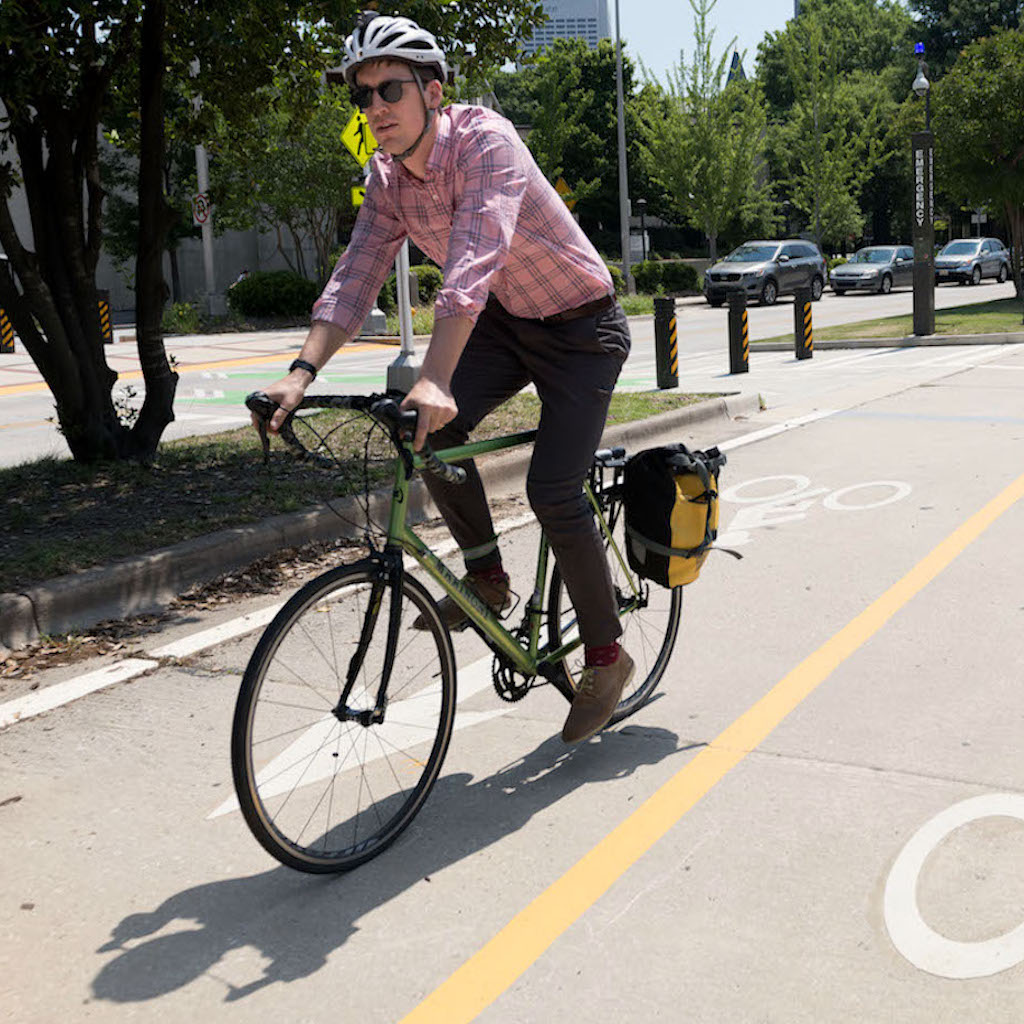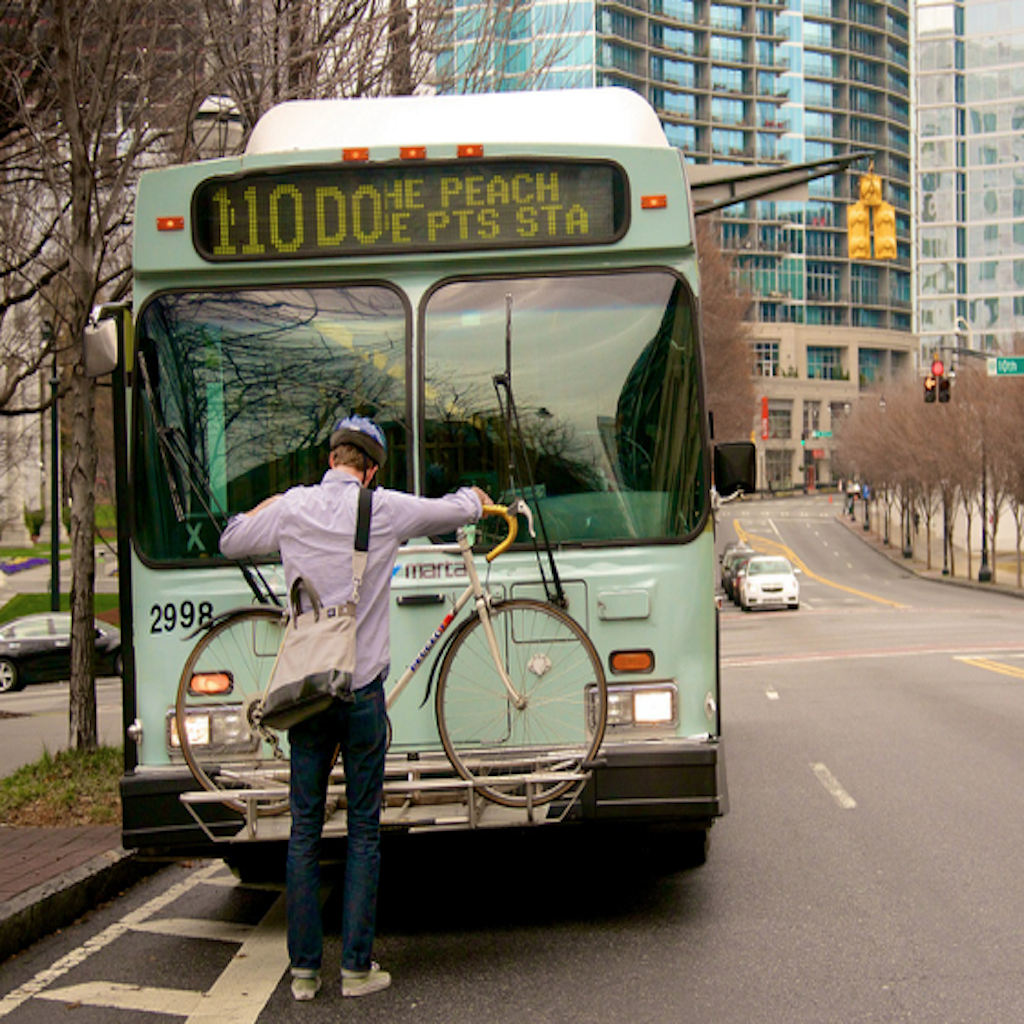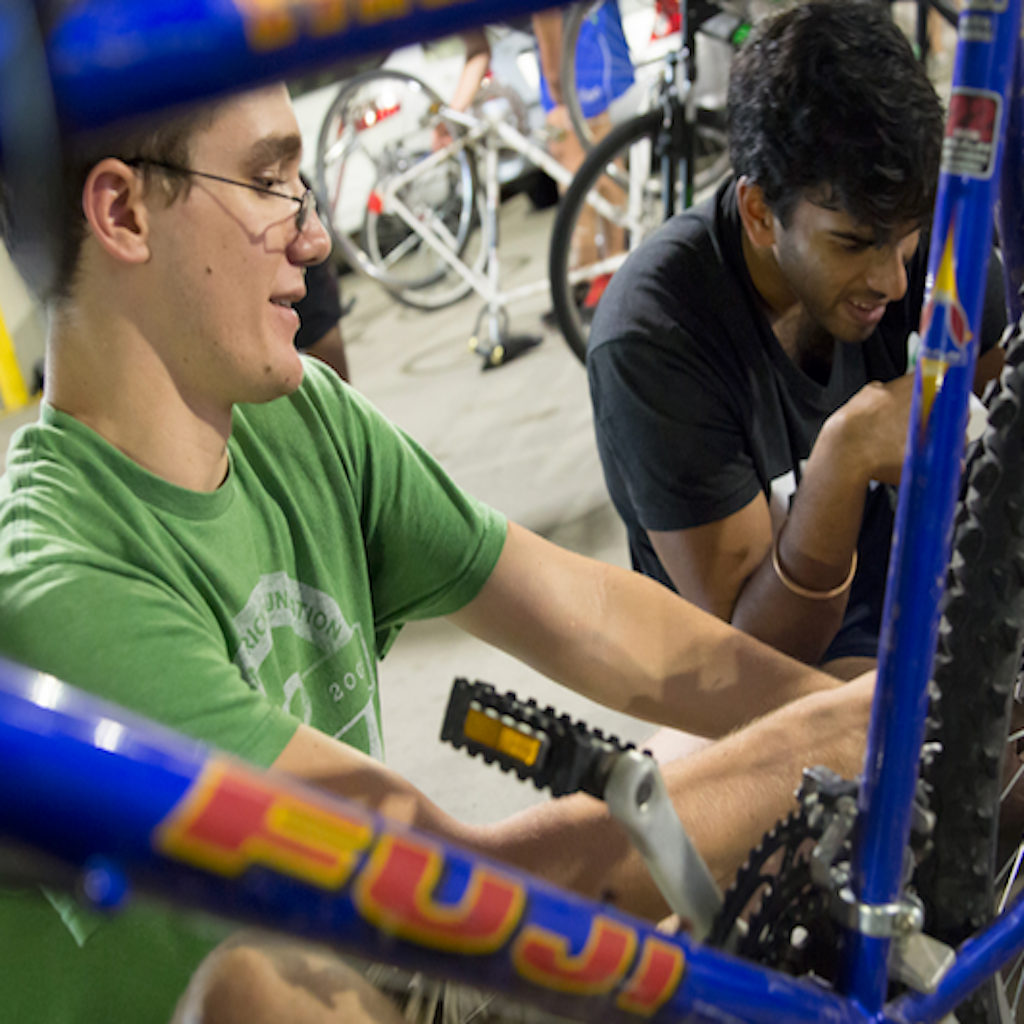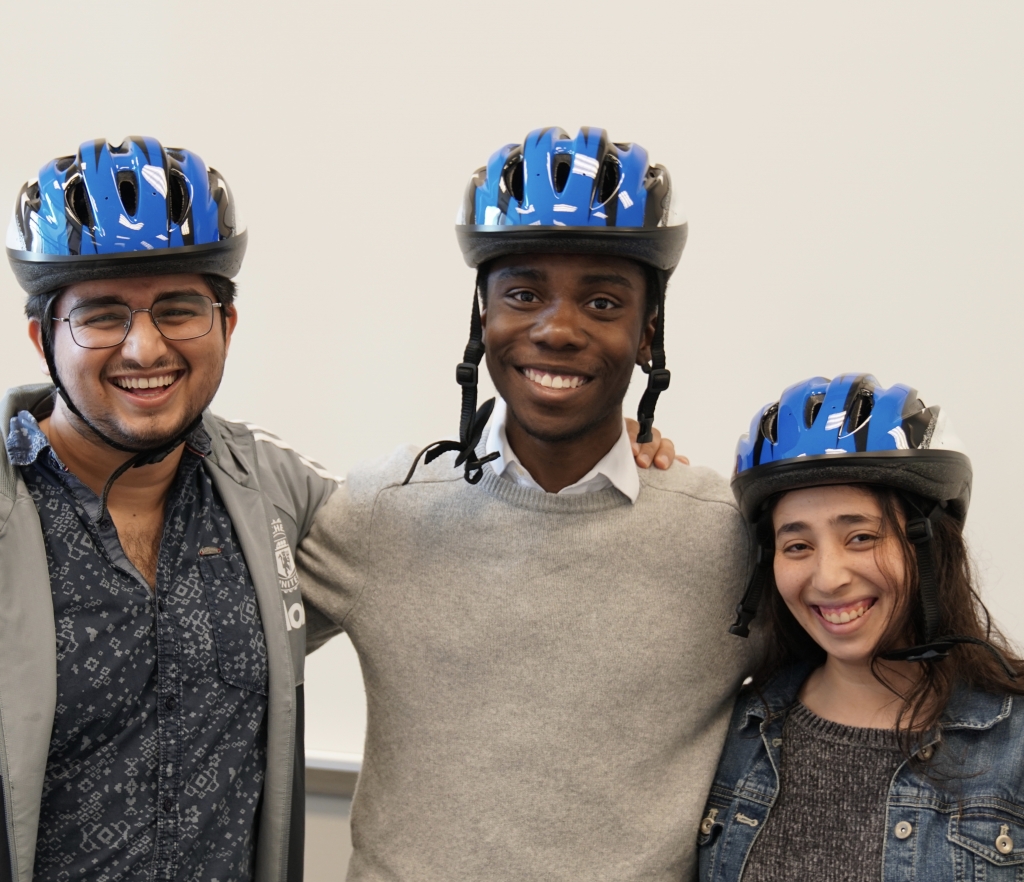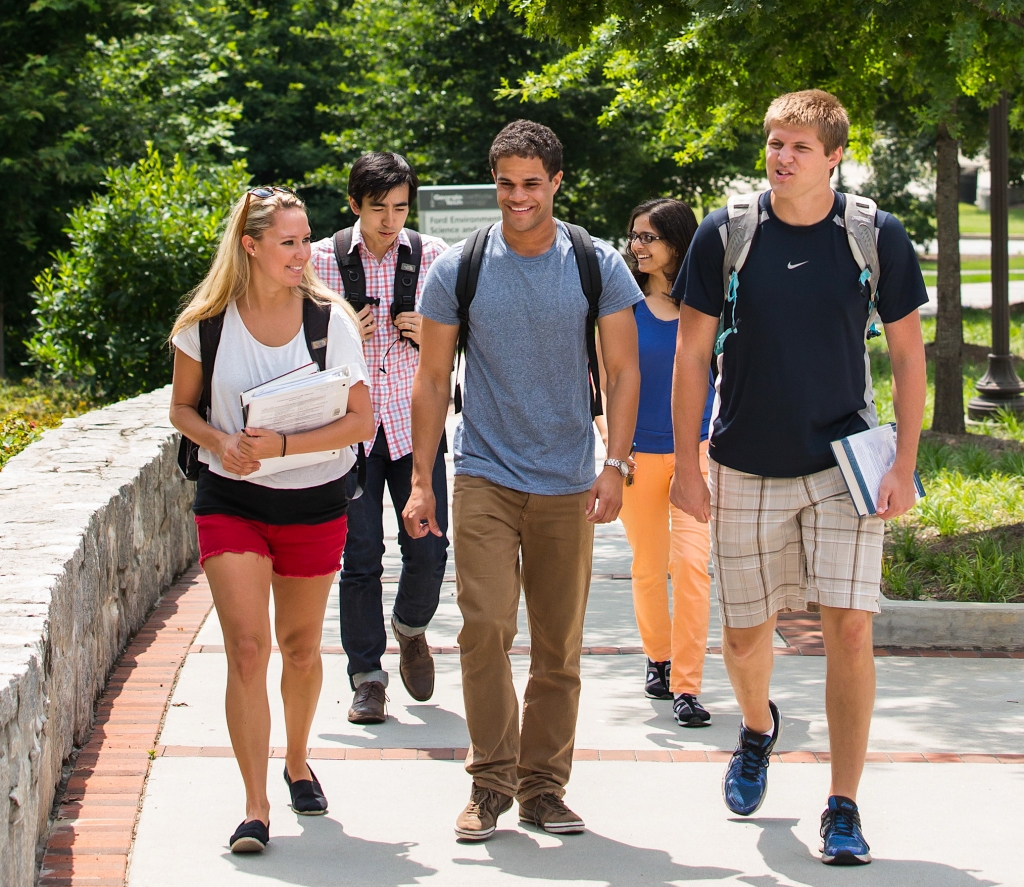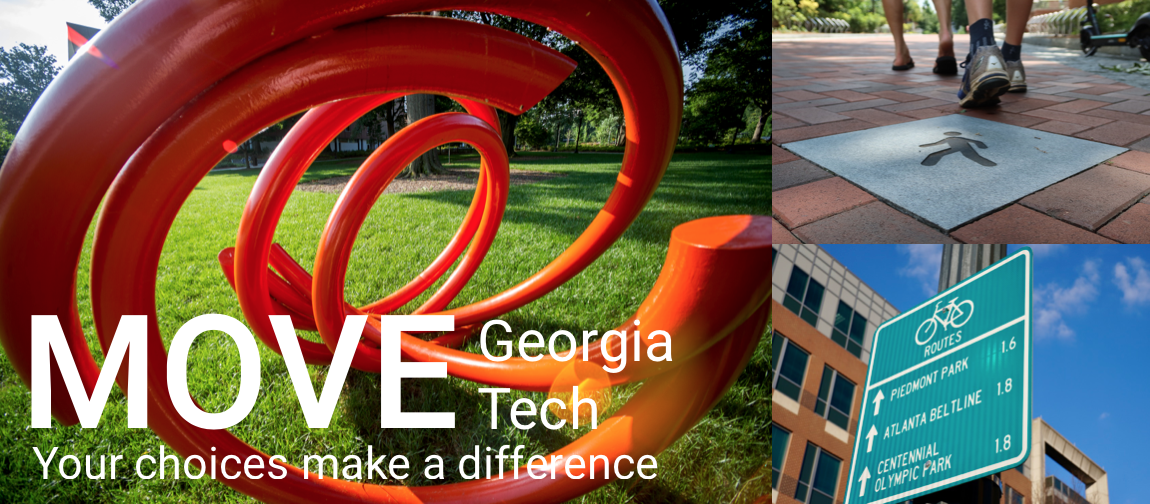
Move Anchor Links
Active transportation" is human-powered transportation, such as walking, bicycling, or rolling; it is the acknowledgment that transportation choices are about more than reaching a destination but the impact of the journey on the individual, local community, and world.
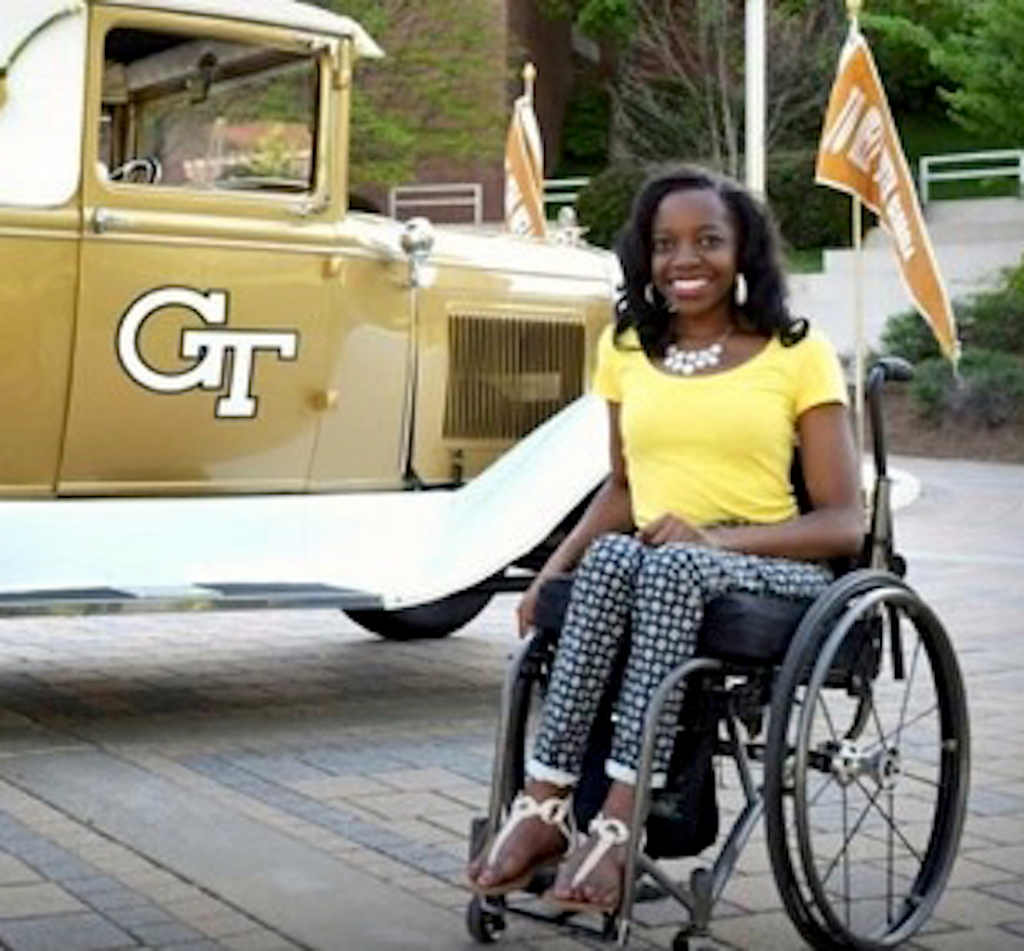
Environmental
- The transportation sector is the largest contributor to greenhouse gas emissions in the United States, accounting for 29% of emissions in 2019. Light-duty vehicles, such as cars, account for 59% of those emissions.
- CO2 per kilometer: car (271g) vs bike (21g) vs walking (32g). Numbers include production and “fueling” the pedestrian or rider.
- In 2018, bikes made up 6% of the miles traveled in world cities; if by 2050 it has increased to 14%, there would be an overall 11% reduction in carbon emissions.
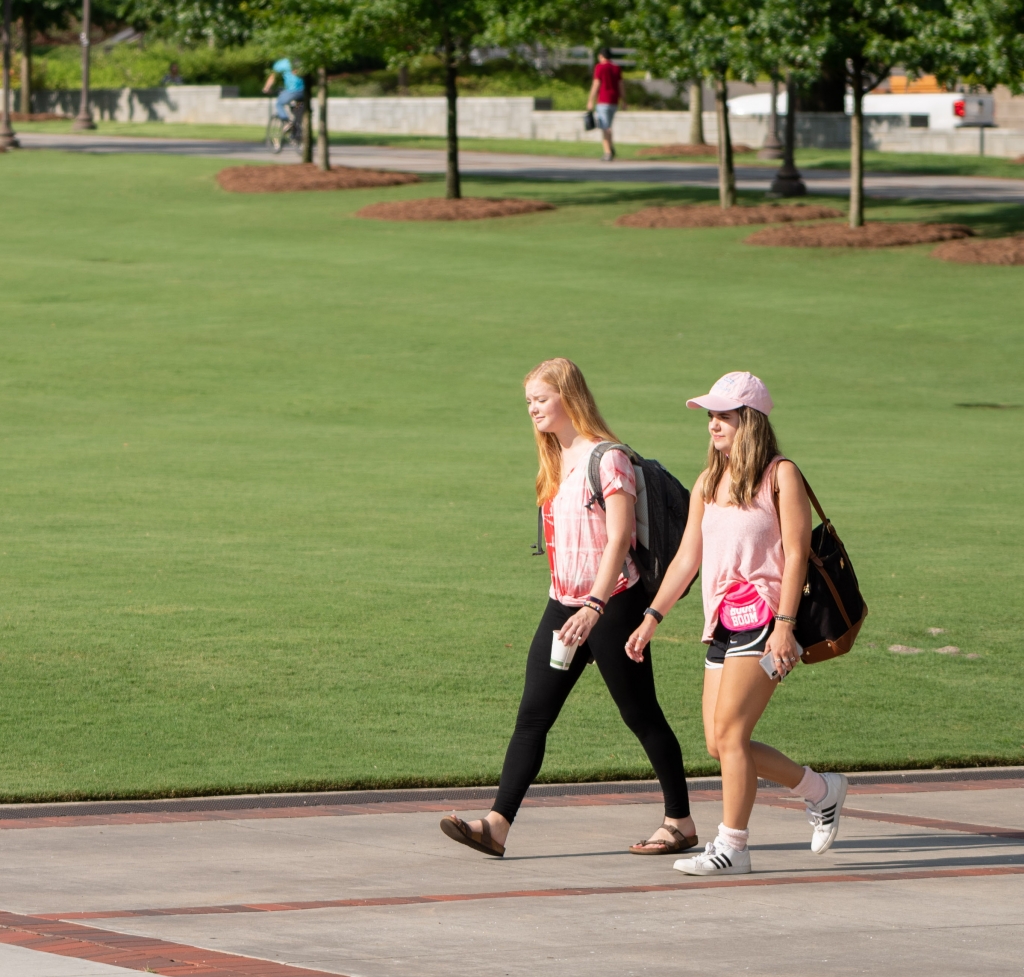 Physical Health
Physical Health
-
40% of all trips made in the United States are less than two miles; walking just three trips per week would achieve the recommended 150 minutes of weekly aerobic exercise.
-
Active transportation, as a part of everyday travel, is as effective as structured workouts for improving health.
-
Regular physical activity helps people to sleep better, reduces the risk of cardiovascular disease, colon and breast cancers, osteoporosis, and being overweight.
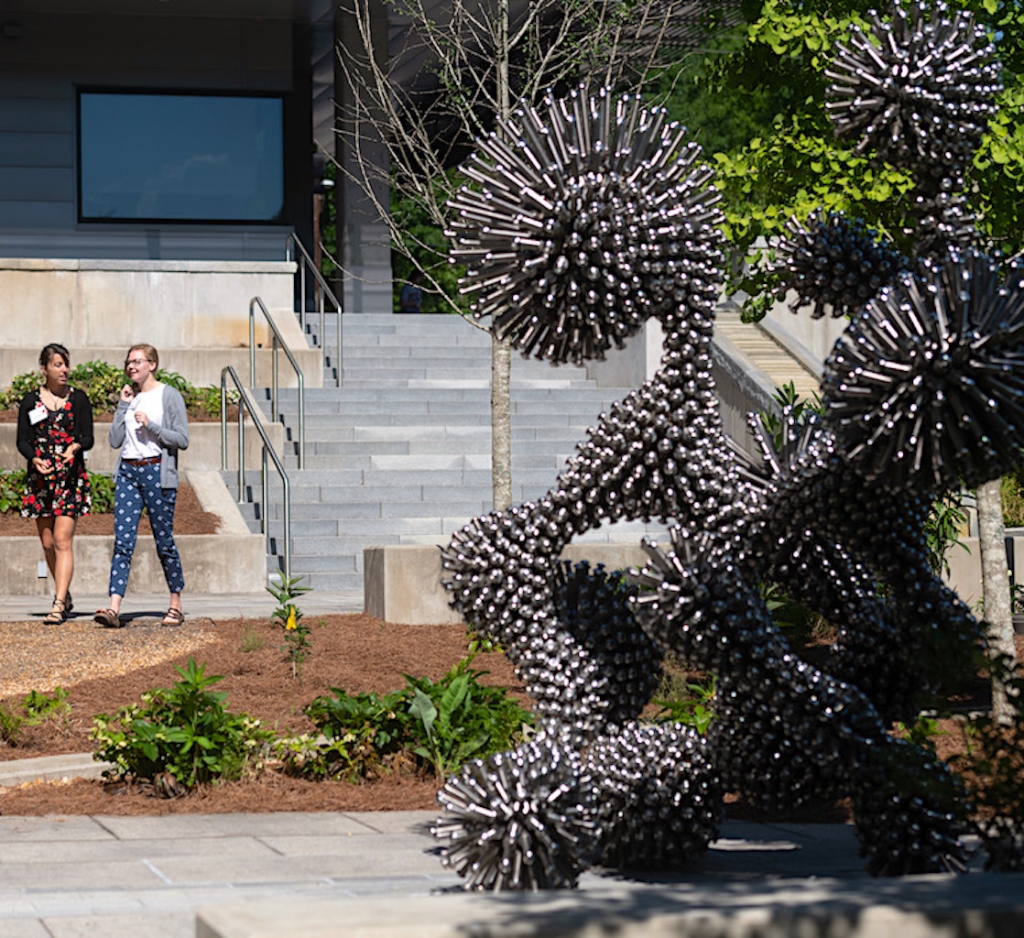 Mental Health
Mental Health
- Active transportation provides a dedicated time for self-care, where commuters can disconnect from their devices, listen to a podcast, or even meditate.
- People who are regularly physically active have up to a 30% reduced risk of becoming depressed and activity helps those who are depressed to recover.
- A ten minute brisk walk has been proven to increase energy, mental alertness, and positive mood; consider incorporating the Tyler Brown Pi Mile route or an exploration of the public art on campus into your journey.
- Car commuting is a predictor of social isolation, which causes unhappiness, vs walking, biking, and rolling, which foster social connectivity.
Financial Health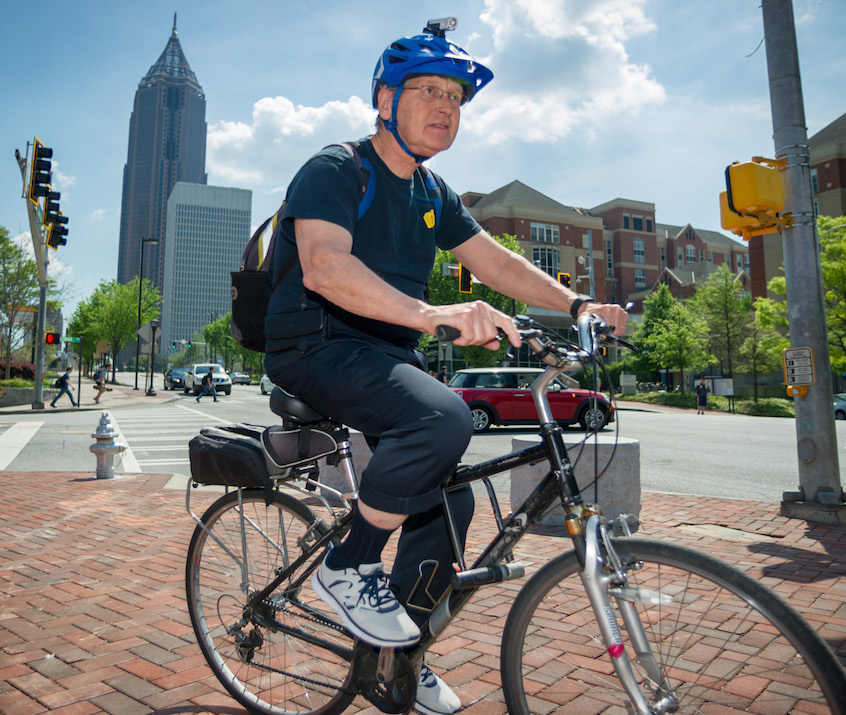
- On average, a driver in Georgia pays $11,578 per year to own and operate a car vs $350 for a bike.
- The health benefits of bike commuting result in fewer sick days and an average of $544 in annual savings in healthcare costs.
- Parking and Transportation Services’s SmartPark pass allows active commuters to save on an annual parking pass but still economically park on campus when needed.
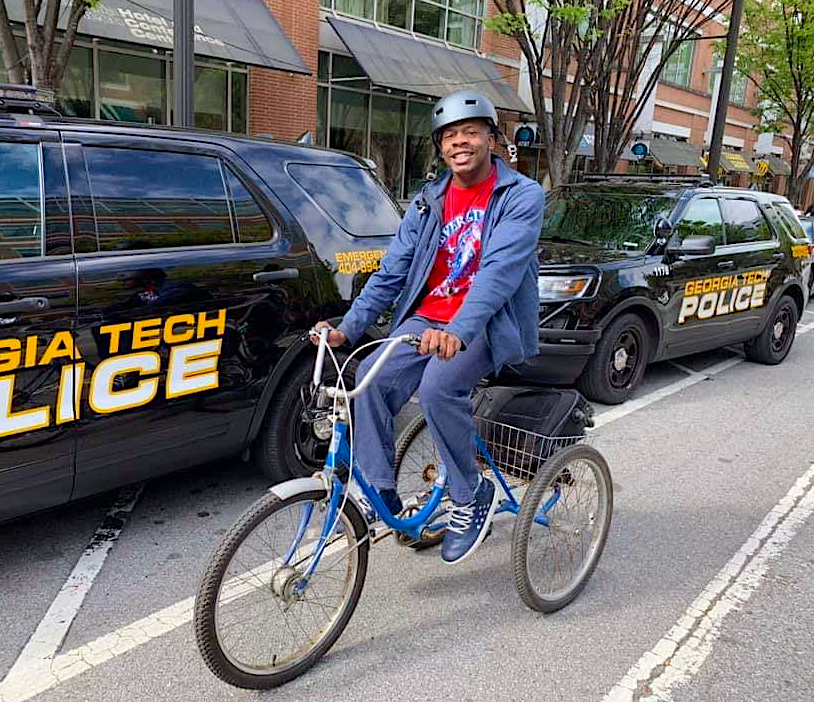
Drivers
Build a safer road environment by limiting distractions, focusing on your surroundings, slowing down, passing with care, and avoiding blocking crosswalks and bike lanes.
Integrating Active Transportation into Your Day
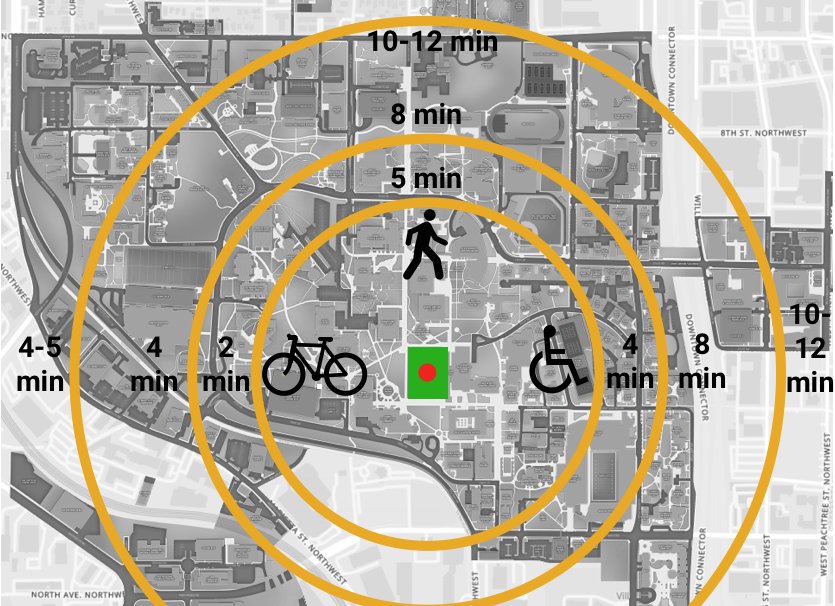
- Shorten in-person meetings or classes by 5-10 minutes to allow for travel. Inform people that this time will be provided
- Invite others attending the same meeting or class to walk or roll with you
- Wear comfortable shoes throughout the day
- Make active travel productive; schedule a walking meeting, brainstorming session, or make phone calls
- Leave early and walk or roll at a slower pace to not get as hot
- Carry a healthy snack, sunscreen, and refillable water bottle
Starting an Active Commute
- Change your commute one day per week and add days as you discover what works with your schedule.
- Combine public transportation with walking and riding. MARTA’s on-time performance rate is 97%, and all regional bus and MARTA stations are within a 20 minute walk or 7-8 minute ride to campus. All buses and trains are equipped with bike racks.
- Develop a back-up plan; consider ride-hail, MARTA, or learn whether you qualify for Georgia Commute Options Guaranteed Ride Home reward, which offers four free rides per year to qualifying commuters.

I want to be a good example for my kids, stay healthy, and live more sustainably. Plus, cycling is the feeling of absolute freedom. There's nothing like it.
-Leigh Hopkins, AICP
Bike Commuter
Enterprise Innovation Institute
